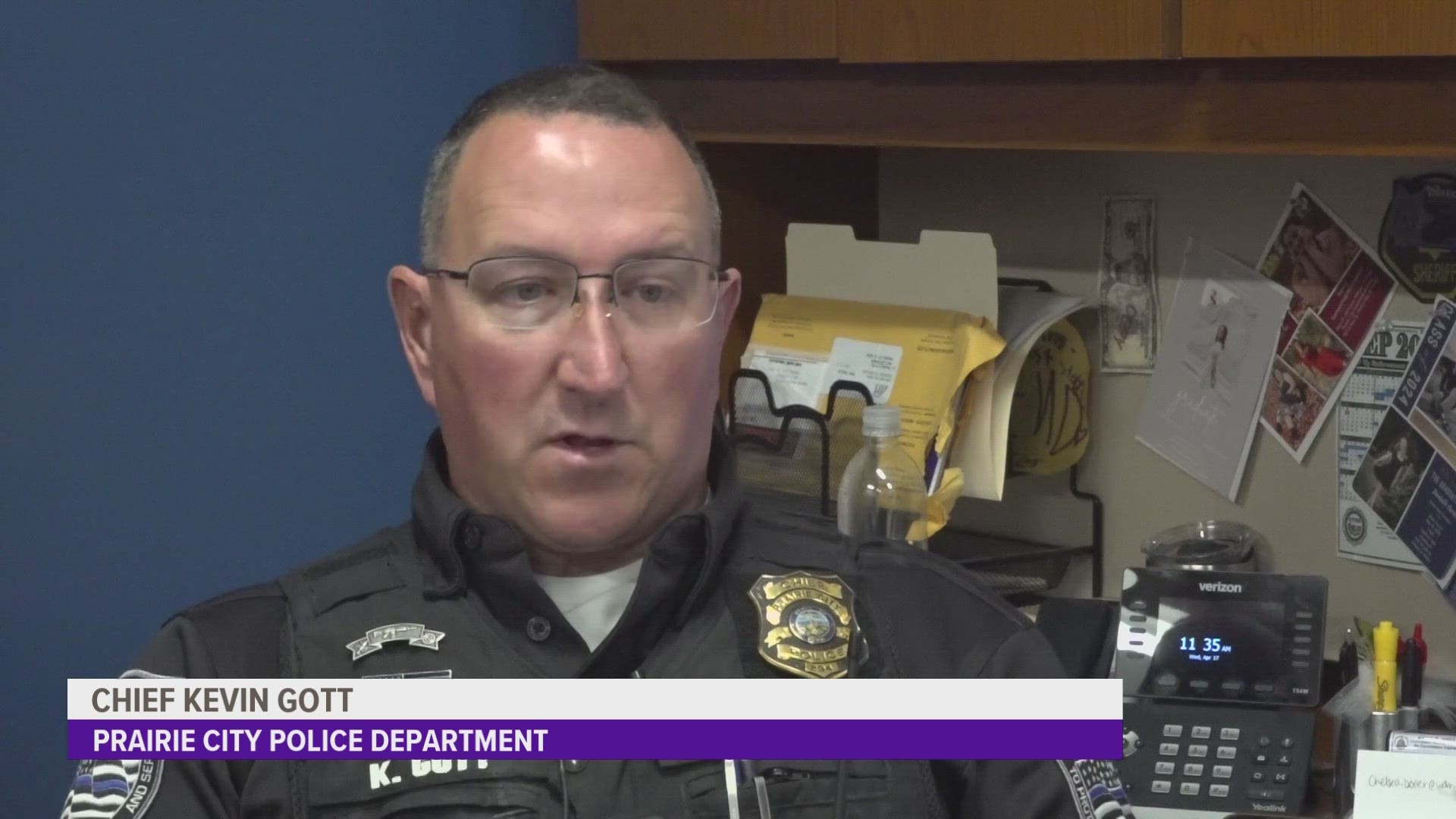PRAIRIE CITY, Iowa — Automated traffic enforcement cameras like the ones that monitor speeding and red-light violations have been unregulated under state law for years. However, that could all change if Governor Reynolds signs a bill currently on her desk.
Local 5 dove into how the new rules could impact one of the cities benefiting from these cameras, known as ATEs.
Prairie City Police Chief Kevin Gott told Local 5 he's actually glad this bill simply regulates these cameras rather than banning them, which another bill in the statehouse aimed to do.
The city has four ATEs altogether. While the legislation would make police get rid of their mobile unit, Gott says the overall impact will be small.
Prairie City is following many of the proposed regulations already.
“We already have the correct signage. We already have the signage in the right places," Gott said.
And, like the legislation proposes, Prairie City ATEs only give out citations if someone is driving 11+ mph over the speed limit.
Additionally, Gott says Prairie City is already doing regular calibrations for their ATEs like the legislation would require.
“If it goes into effect the way it's written and the way I read it, it will have very minimal effect on us," Gott said.
“It will really be minimal honestly. There’s just one or two locations in the city that we use the mobile camera on right now," Gott said.
There will be some changes Prairie City has to make.
Right now, Prairie City only has two levels of speeding: 11+ mph over ($100) and 16+ mph over ($150).
The legislation sets citation limits that cities can’t go over. Prairie City would have to adjust its fines to make sure they fit within the parameters below.
- 10-20+ mph over: $75
- 20-25+ mph over: $100
- 25-30+ mph over: $250
- 30+ mph over: $500
Gott pointed out that Prairie City could make the fines for going 26+ mph over the speed limit more expensive based on the fine limits proposed. That, however, would be up to city council.
The city will also have to adjust how they’re using revenue for ATEs. In the past, Prairie City has put that money towards multiple projects they wouldn’t be able to in the future.
“The council chose to give our public library close to $400,000 to complete that. The library opened last Saturday officially. It was a $1.3 million dollar project," Prairie City Mayor Chad Alleger said.
Under the new regulations, ATE revenue can only go toward transportation infrastructure improvements and police and fire operation costs.
This, however, doesn't worry Alleger.
Since more ATE money will be going towards transportation infrastructure and police and fire, Alleger said the city would be able to allocate other funds to projects currently held up by A.T.E. revenue.
Prairie City would also have to send traffic data to the state which won't be too much a change since the municipality is already keeping track of that information, according to Gott.

